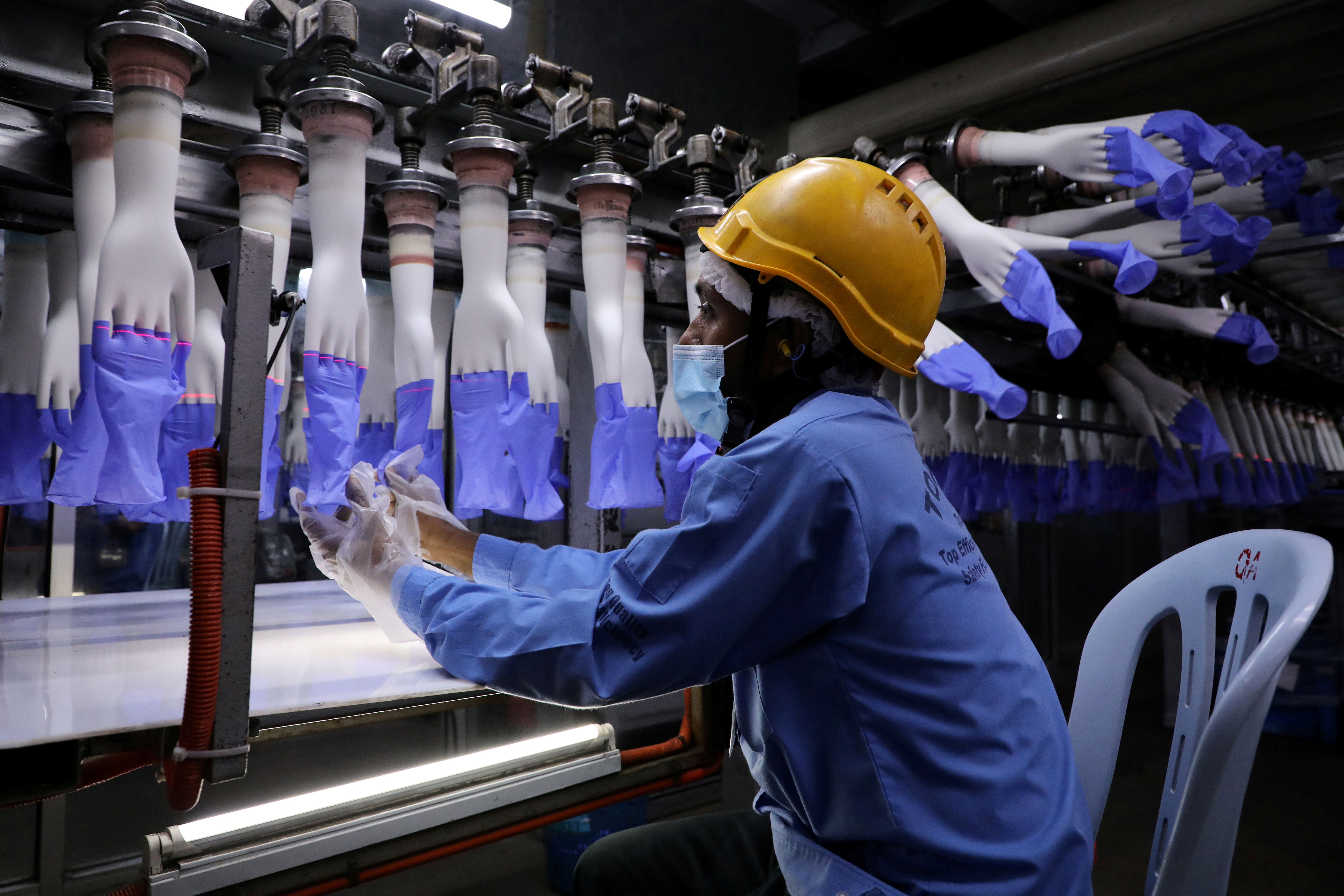
로이터 통신이 전한 소식이다.
동남아시아에 코로나 델타 변이 바이러스가 퍼져 의료용 라텍스 장갑부터 반도체, SUV와 같은 전 세계의 물품 공급이 중단되며 3조 달러 규모의 지역 경제가 위협을 받고 있다.
이번 주 조사된 동남아시아 공장 현황에 따르면 비즈니스 활동이 급격히 하락한 것으로 나타났다. 이는 비즈니스 성장이 둔화되었으나 확장을 유지하고 있는 동북 아시아 및 서구의 제조업과 대조된다.
이러한 동남아시아의 코로나로 인한 경제 악화는 6억의 인구를 갖고 있으나 백신 접종이 느리게 진행된 이유로 악화되었다. 동남아시아의 각 국 정부는 백신을 확보하기 위해 고군분투했으나 성과가 없어 많은 공장이 폐쇄 조치를 취하게 되었다.
이러한 동남아시아에서의 제조업 후퇴는 최근 수십 년 동안 광범위하고 강력한 경제 개혁과 중국과의 근접성을 토대로 다양한 세계적 위기를 견뎌온 시기를 위협하고 있다.
HSBC의 경제학자들은 인도네시아, 베트남, 필리핀, 태국 등의 낮은 접종률과 불확실한 백신 효능은 이들 국가의 경제를 위험에 빠뜨릴 것이라고 경고하며 “이는 이들 국가의 인구가 현재의 발병뿐만 아니라 앞으로 발생할 수 있는 모든 돌연변이에 취약할 수 있다는 것을 의미한다”고 말했다. 또한 그들은 “지속된 거리두기 체제가 단기 성장 전망에 부담이 될 것”이라고 덧붙였다.
저비용 노동력과 원자재 공급에 대한 접근성 등의 경쟁력이 있는 동남아시아 제조업체의 경우 이러한 코로나 바이러스로 인한 노동력 공급 부분의 차질은 주요 생산 병목현상이 된다고 말했다.
한편, 아시아 4위 자동차 수출국이자 글로벌 주요 자동차 브랜드 생산기지인 태국에서 도요타 자동차는 코로나로 인한 부품 부족으로 7월에 3개 공장의 생산을 중단했다.
BANGKOK/KUALA LUMPUR, Aug 4 (Reuters) – Fresh outbreaks of the Delta coronavirus variant in Southeast Asia have crippled its factory sector, disrupting global supplies of goods such as rubber gloves, semiconductors and SUVs and threatening the $3 trillion region’s recovery.
A series of factory surveys this week showed business activity across most Southeast Asian economies fell sharply in July, a contrast to more resilient manufacturing economies in Northeast Asia and the West, where business growth has slowed but remained in expansion. read more
The economic disruptions in Southeast Asia caused by the virus have been made worse by slow progress in vaccinations in the region of 600 million people. Governments have struggled to secure doses and have imposed costly lockdowns that have left many factories without workers.
The setbacks threaten the growth of one of the world’s more resilient emerging market blocs, which has withstood various global crises in recent decades thanks to broad robust economic reforms and its proximity to China.
HSBC economists warn the low inoculation rates in Indonesia, Vietnam, the Philippines and Thailand, as well as the uncertain efficacy of their vaccines, put their economies at risk.
“This means that populations in these countries could remain vulnerable not only to the current outbreak, but any future mutations that may develop,” HSBC said. “Touch-and-go restrictions are likely to continue, weighing on the near-term growth outlook.”
For Southeast Asia’s manufacturers, which are competitive largely because of low-cost labour and access to raw materials, the impact of new outbreaks on labour supply has been a major production bottleneck.
In Thailand, Asia’s fourth-largest auto exporter and a production base for major global car brands, Toyota Motor Corp (7203.T) suspended production at three of its plants in July in July due to parts shortages caused by the pandemic.
![]()



![[AI로보틱스 트렌드 바로읽기] 외식업부터 물류 현장까지, 산업 현장을 바꾸는 로봇 자동화 솔루션](https://mobiinsidecontent.s3.ap-northeast-2.amazonaws.com/kr/wp-content/uploads/2025/12/09101303/251210_%EC%82%B0%EC%97%85-%EB%A1%9C%EB%B4%87-%EC%86%94%EB%A3%A8%EC%85%98_01-218x150.jpg)
![[AI로보틱스 트렌드 바로읽기] 국내 스마트 공장 도입 비율 19.5% 불과… 현실을 바꾸는 해법은?](https://mobiinsidecontent.s3.ap-northeast-2.amazonaws.com/kr/wp-content/uploads/2025/11/12111527/251113_%EC%8A%A4%EB%A7%88%ED%8A%B8-%ED%8C%A9%ED%86%A0%EB%A6%AC-%EC%8B%A4%ED%83%9C_%EC%84%AC%EB%84%A4%EC%9D%BC-218x150.jpg)
![[AI로보틱스 트렌드 바로읽기] 흔들리는 한국 제조업, 해법은 ‘스마트 제조’ 전환에 있다](https://mobiinsidecontent.s3.ap-northeast-2.amazonaws.com/kr/wp-content/uploads/2025/09/23141250/250924_%EC%8A%A4%EB%A7%88%ED%8A%B8-%EC%A0%9C%EC%A1%B0_%EC%84%AC%EB%84%A4%EC%9D%BC-218x150.jpg)